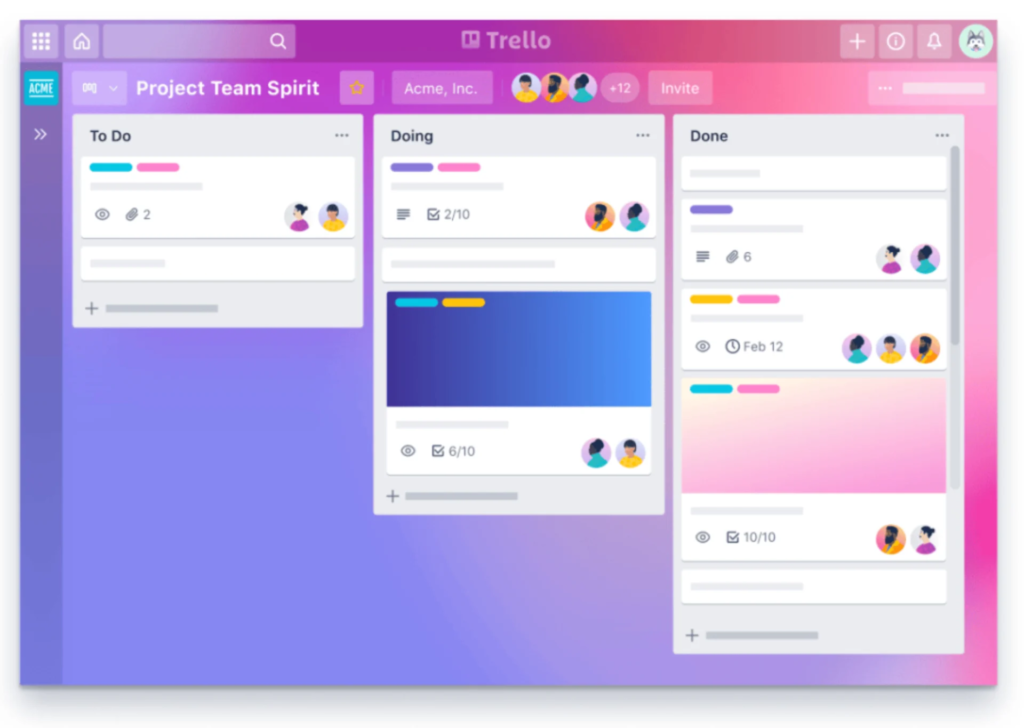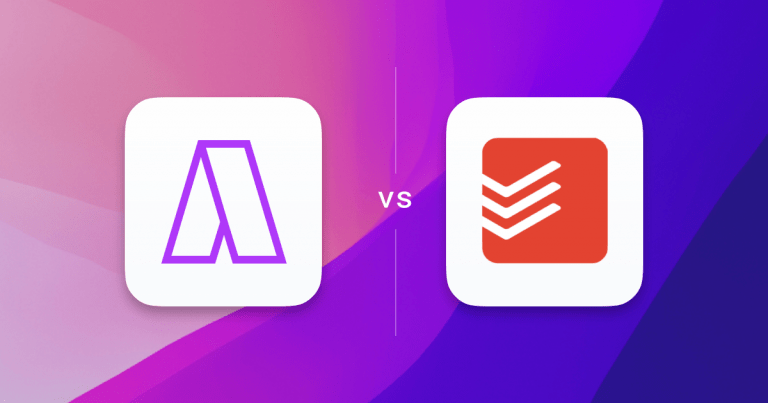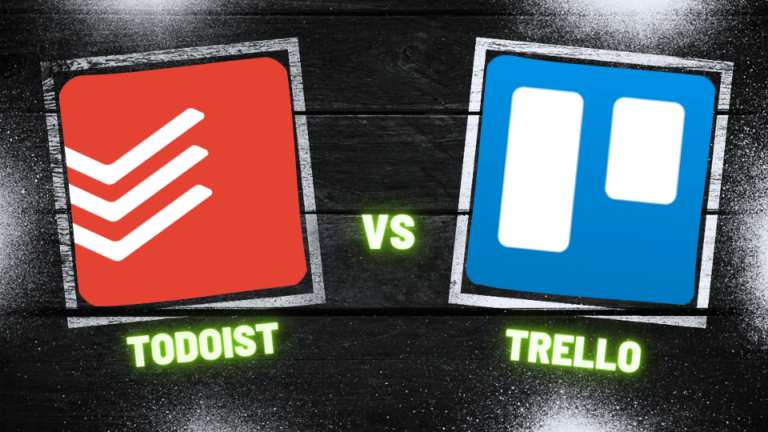What is Todoist
Todoist stands out in the productivity tool landscape with its straightforward yet powerful approach to task management. Renowned for its clean design and user-friendly interface, Todoist simplifies the process of managing daily tasks and long-term projects. It allows users to create, organize, and prioritize tasks with ease, making it an ideal choice for individuals and teams alike. With features like recurring tasks, reminders, and progress tracking, Todoist effectively helps users stay on top of their responsibilities.
Key Features of Todoist
- Task Management: Create, track, and complete tasks with Todoist. Set deadlines, priorities, and reminders for each task.
- Project Organization: Group your tasks into different projects like work, personal, or travel plans. Break them down into smaller subtasks and sections for better organization.
- Labels and Filters: Use labels to categorize your tasks. Filters help you find tasks quickly, like those due today or high-priority ones.
- Recurring Tasks: Set up tasks that repeat regularly, like daily, weekly, or monthly.
- Team Collaboration: Share projects with others, assign tasks, and work together within the app.
- Works Everywhere and Easy to Use: Use Todoist on web browsers, desktops (Windows, macOS), and mobile apps (iOS, Android). The interface is simple, making it easy to start using right away.
What is Trello
It’s known for its easy-to-use Kanban board approach but also offers other views like timelines and calendars. Trello is great for visual organization and team collaboration, with features like customizable cards, labels, and notifications. However, it may be less feature-rich compared to some alternatives like ClickUp or Monday.com, particularly in areas like advanced reporting or analytics. Trello’s simplicity makes it accessible but might not suffice for complex project management needs.

Key Features of Trello
- Board Organization: Trello’s boards enable visual management of projects using lists and cards, enhancing visibility and tracking.
- Customizable Cards: Cards can be enhanced with descriptions, checklists, labels, and attachments, providing essential task details in one place.
- Team Collaboration: The platform supports real-time team collaboration, ensuring everyone is updated and in sync.
- Drag-and-Drop Interface: Its intuitive interface allows easy movement of cards between lists for updating priorities and workflow.
- Labels and Filters: These help in categorizing and organizing tasks, with customizable label colors and names.
- Notifications and Reminders: They keep users informed about due dates and important updates, ensuring task deadlines are met.
Todoist vs Trello: Features
| Features | Todoist | Trello |
|---|---|---|
| Integrations | IFTTT, Alexa, Google Calendar, Slack, Gmail, Zapier, Fantastical, Outlook, Chrome, Trello Power-Up | Trello integrates with several apps including Google Drive, Google Chat, Google Hangouts, Google Slides, Jira, Slack, GitHub, Dropbox, and Zendesk |
| Calendar | No Calendar View | Yes. Trello offers a Calendar view which is available for Premium and Enterprise plans. |
| Platforms | Android, iOS, iPad, macOS, Windows, Android Wear, and Apple Watch | macOS, iOS, Android, Web, and Windows |
| Task Management | Labels, Filters, Priority levels, Recurring tasks | Trello provides features like advanced checklists, labels for prioritization, and the ability to manage recurring tasks |
| Natural Language Processing | Yes | No |
| Time Blocking | Not Available | While Trello itself does not have a native time blocking feature, it can be used in conjunction with time blocking techniques |
| Analytics | Yes | Trello offers basic task analytics, particularly when integrated with tools like Zapier and Google Sheets for data analysis. |
| Meeting Scheduler | Yes | No |
| Time Zones | Yes | Yes |
| Reminders | Yes | Yes |
| Customer Support | Average | Good |
| 1:1 User Onboarding | No | Not mentioned on their website |
| Pricing | Premium at $4 per month, paid annually | Free Plan for individuals and small teams, Standard Plan at $5 per user/month (billed annually), Premium Plan at $10 per user/month (billed annually), and an Enterprise Plan for larger organizations at $17.50 per user/month (billed annually) |
Todoist vs Trello: Pricing
Todoist Pricing
(i) Free Version: Suitable for basic task management needs.
(ii) Pro Plan: Typically priced around $3 to $5 per month when billed annually.
(iii) Business Plan: Generally costs about $5 to $10 per user per month when billed annually.
Todoist offers a flexible pricing model catering to a range of users, from individuals to business teams. The free version is a major draw for users with basic requirements.
Trello Pricing
Trello offers several pricing plans:
(i) Free Plan: $0, suitable for individuals or small teams to organize projects.
(ii) Standard Plan: $5 per user/month (billed annually) or $6 monthly, for small teams needing work management and collaboration scaling.
(iii) Premium Plan: $10 per user/month (billed annually) or $12.50 monthly, for teams tracking multiple projects with various visualization tools.
(iv) Enterprise Plan: $17.50 per user/month (billed annually), providing connectivity, security, and controls for organizations.
Todoist vs Trello: Reviews
Todoist Review
Todoist is acclaimed for its simple interface and cross-platform availability, featuring automatic data backup, productivity reports, and customizable tasks. It’s ideal for both teams and individuals, with integrations like Outlook and Google Calendar. However, managing sub-projects and sub-tasks can be challenging, and its template feature may lack intuitiveness. The Karma feature, aiming to gamify productivity, might instead lead to excessive app usage. These aspects could deter users with specific workflow needs, making Todoist a less suitable option for them.
Trello Review
Trello is highly regarded for its visual project management capabilities, particularly its use of the Kanban system. It’s appreciated for its ease of setup and the variety of views it offers, making it a favorite among both specialist and generalist users. Trello’s array of features, including multiple views, detailed card information, and numerous integrations, contribute to its effectiveness.
However, it’s noted that Trello has been slow in developing certain features. This aspect might affect users looking for a more feature-rich experience. Trello is considered suitable for small to medium-sized teams, as well as large teams, and it provides a great individual user experience too. Its simplicity and lower learning curve compared to tools like Notion make it easy to learn and implement.
Which One Should You Pick
Consider Todoist if
- You have Basic to Moderate Task Management Needs: If your task management needs are straightforward or moderate, Todoist’s features will likely suffice.
- You Are Looking for Flexibility in Pricing: Todoist offers a free version and reasonably priced Pro and Business plans, making it accessible for a range of budgets.
- You Need a User-Friendly and Simple Interface: If you prefer simplicity and ease of use, Todoist’s straightforward and intuitive interface might be more appealing.
Consider Trello if
- You need a user-friendly project management tool: Trello is great for those who prefer a simple, visual approach to task and project management with its easy-to-use Kanban boards.
- Your team requires basic project management features: Trello is suitable for teams that need straightforward project management capabilities without the complexity of more advanced tools.
- You rely on integrations but don’t need extensive features: Trello offers a range of integrations through its Power-Ups, but it may not be as comprehensive as some other tools for users requiring advanced features.
Best Todoist and Trello Alternatives
- Akiflow: Akiflow is a time management app offering time blocking, task scheduling, and integrations with various tools. It focuses on productivity and organization through a unified task and appointment interface.
Akiflow Price: $19 per month, paid annually - Things 3: Things by Cultured Code is a sleek task manager for Apple devices. It offers intuitive organization for personal tasks and projects, featuring to-do lists, schedules, and reminders, all within an elegant interface. This app is designed for seamless integration with Apple’s ecosystem.
Things 3 Price: One Time Payment at $50 - TickTick: TickTick is an all-in-one task management and reminder app, offering features like task organization, habit tracking, and calendar views. It’s designed for personal and work use, facilitating productivity with its user-friendly interface and cross-platform compatibility. TickTick also includes collaboration tools for team projects.
TickTick Price: $3 per month, paid annually

Best Time Blocking Web and Desktop Apps, 2024
Explore the best time blocking apps of 2024! Discover how Akiflow, TickTick, Usemotion, Sunsama, Sortedapp, and TimeHero revolutionize productivity, offering unique features for professionals and students to manage tasks and enhance efficiency.

Improve Focus: 5 ADHD Productivity Tools & Calendar Apps for 2023
Discover five of the best apps and tools for those with ADHD, from note-taking apps to time-blocking platforms. Get ready to stay organised, motivated and on track with Akiflow’s essential guide.

The Top 3 Todoist Alternatives (In-Depth Review)
Over 25 million people now use Todoist to stay on track and plan their day. It has expanded rapidly and is now a widely used task manager with seamless integrations into other task and calendar managers like Akiflow. While Todoist is hugely popular among its wide user base, there are now a variety of Todoist […]

